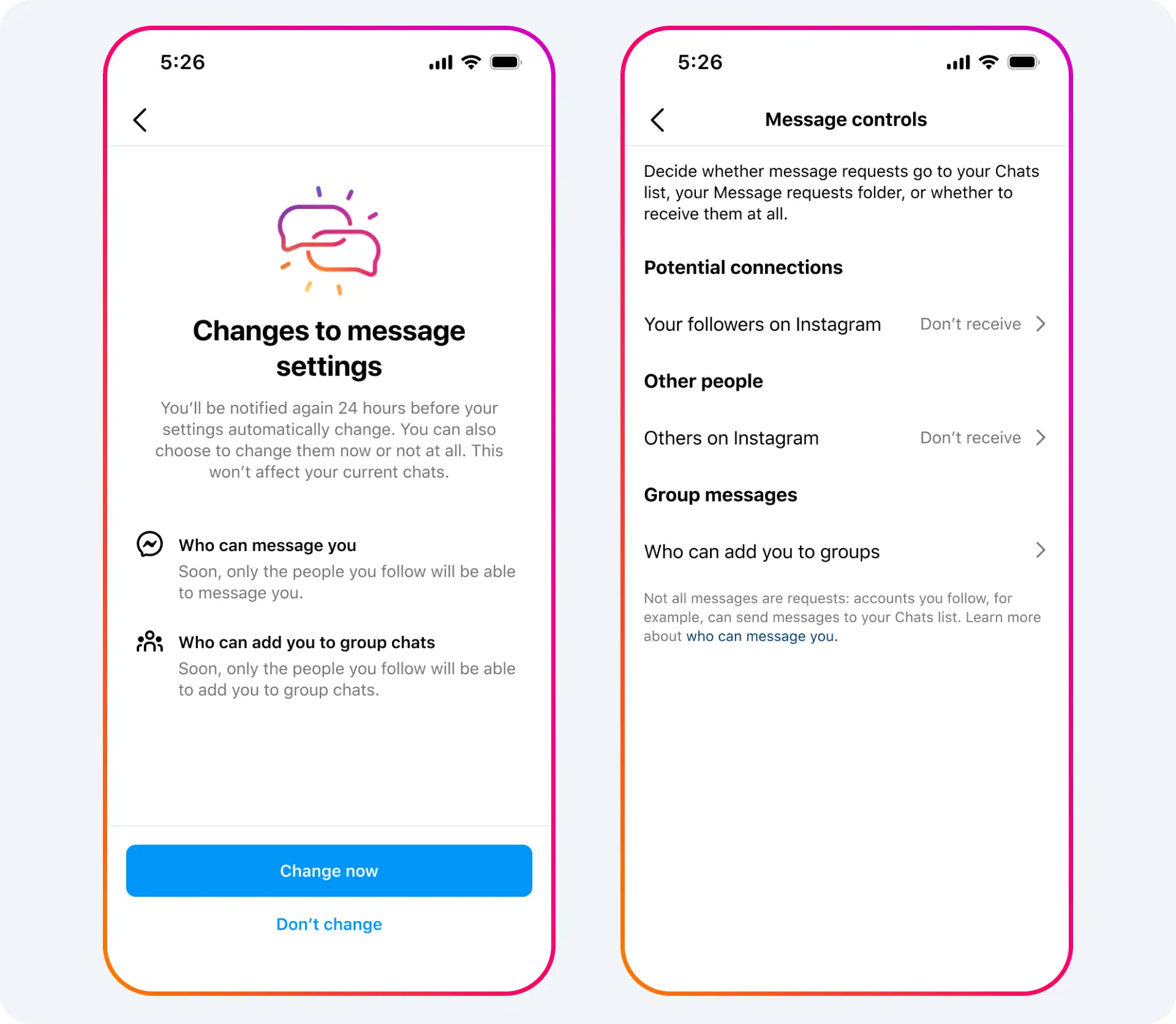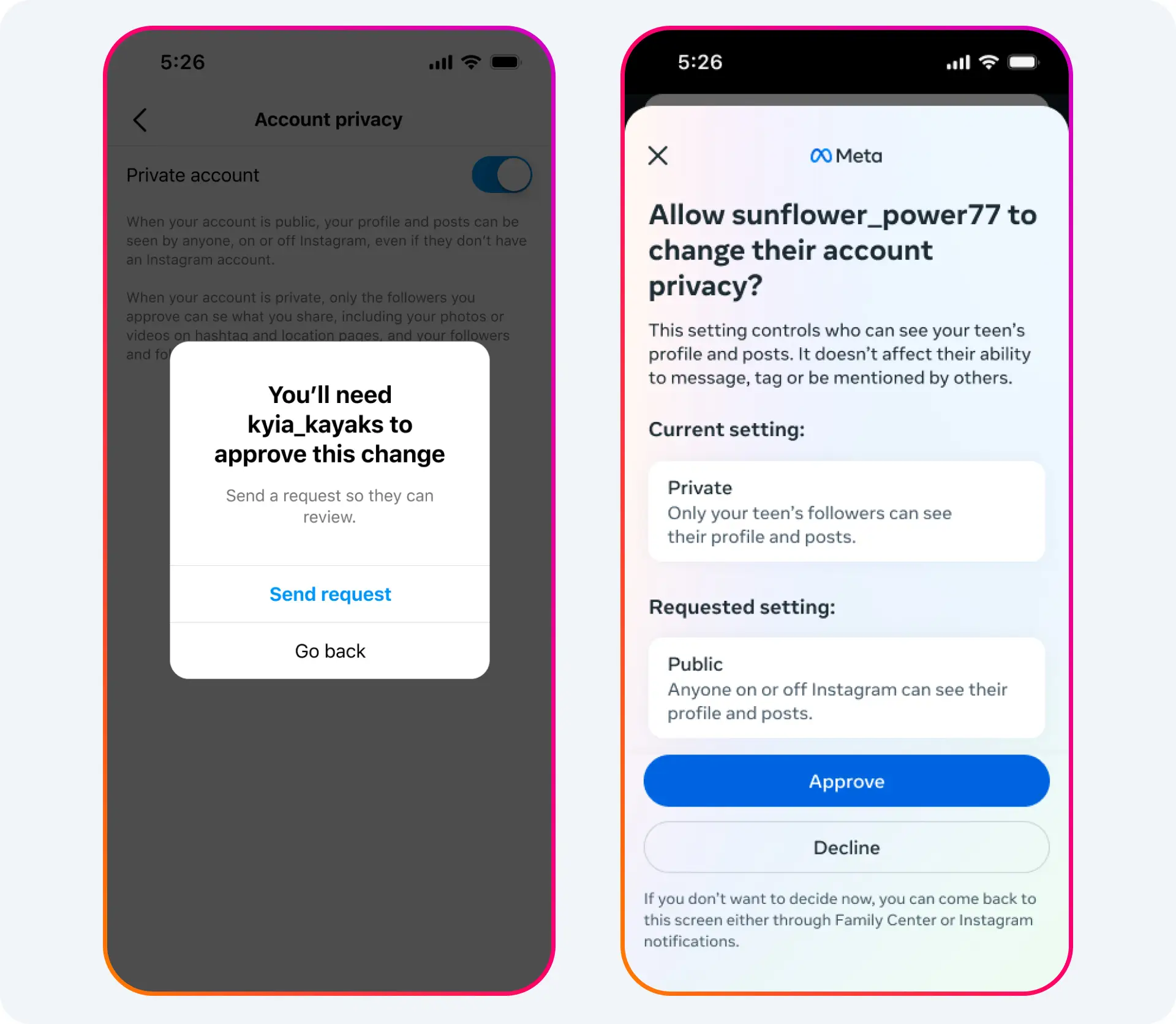
Instagram has just announced a brand-new huge change to the app for teens to keep them 'safe'.
Meta has just rolled out some pretty major changes to the social media platform today (25 January) aimed at helping protect teens from unwanted contact on Instagram and to make it simpler for parents to shape their teens’ online experiences.

The change in question focusses on the private message settings on the photo-sharing app with Meta explaining exactly why it's rolling it out.
Advert
Opening up a little more about the new change in a blog post on its official website, Meta explained it already restricts adults over the age of 19 from messaging teens who don’t follow them as well as limiting the type and number of direct messages (DMs) people can send to someone who doesn’t follow them to one text-only message.

But Meta is now rolling out an additional safety measure to help protect teens from unwanted contact by turning off their ability to receive DMs from anyone they don’t follow or aren’t connected to on Instagram – including other teens – by default.
"Under this new default setting, teens can only be messaged or added to group chats by people they already follow or are connected to, helping teens and their parents feel even more confident that they won't hear from people they don't know in their DMs," the statement explains.
It continues: "This default setting will apply to all teens under the age of 16 (or under 18 in certain countries).
"Those already on Instagram will see a notification at the top of their feed letting them know we're making these changes to their message settings.
"We're also making these changes to teens' default settings on Messenger, where under-16s (or under 18 in certain countries) will only receive messages from Facebook friends, or people they're connected to through phone contacts, for example."

Meta adds that, as with all its parental supervision tools, this new feature is intended to 'help facilitate offline conversations between parents and their teens, as they navigate their online lives together and decide what’s best for them and their family'.
Larry Magid, CEO of ConnectSafely, said: "Empowering parents to approve or deny requests to change their teen’s default safety and privacy settings gives parents the tools they need to help protect their teens, while at the same time respecting their teens’ privacy and ability to communicate with their friends and family."
Topics: Instagram, News, Parenting, Social media, UK News, US News